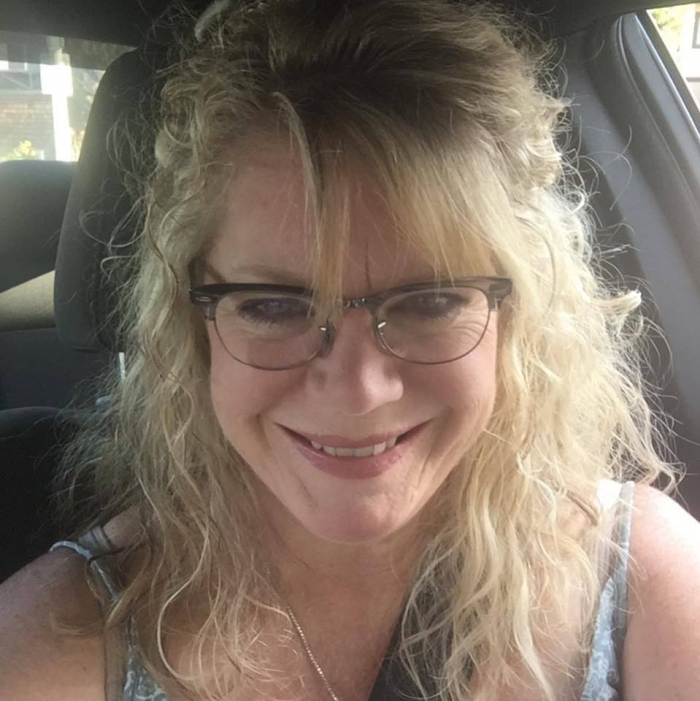Profiles in Recovery

Annette Marshall
Marshall was born into a family that had been plagued by generations of substance abuse.
“Despite their best efforts, my parents were unable to be the loving and nurturing parents that they surely had hoped to be, and that I wanted and needed,” Marshall says. “They loved us very much, but were so broken inside due to their own mistreatment and untended wounds, that they were incapable of conveying that to us.”
Marshall’s story of recovery is not one of personal substance use, but about finding her way back to wholeness in the fallout of addiction. She is the granddaughter, the daughter, the sibling, the parent, the niece, and the friend of people who have struggled with addiction – and it has impacted her life on many levels.
Healing for Marshall came with the loving embrace of Al-Anon – and a spiritual awakening. “As I kept coming back to meetings, as I got a sponsor, worked the 12 steps – layer by layer as things were revealed, I began to deal with them. I started to feel peace. I wasn’t angry anymore. I felt like I was finally experiencing some freedom.”
PreviousNextDay Job:
End-of-life caregiver, volunteer parent coach for The Partnership for Drug Free Kids, long-time homeschooling mom.
What I lost to addiction:
Security, confidence. I lived a life filled with fear and uncertainty for many years. I spent so much time trying to control the uncontrollable and head off what felt like impending doom, that I missed out on a lot of milestones in most young girls’ lives. Much of my life was spent focused on managing chaos rather than living my own life and becoming the person I wanted to be.
What worked for me:
I began seeing a therapist when one of my children began their journey with substance use. The therapist suggested I try Al-Anon. I sobbed through my first several meetings, but I met other parents there who told me to keep coming back, that it was OK to cry, that they understood. They met me where I was . . . so broken and feeling like a failure.
One mom said, “Just for tonight, can you put your girl into God’s hands and let Him take care of her? Give yourself 12 hours to sleep and get some rest. If it feels good, you can try it again in the morning.” I felt so much relief at that idea. Twelve hours was doable. I’ve done it every day since with all of my kids and a myriad of situations in life.
Rules I live by:
Be still and let things unfold. Do what is right in front of me and try not to project into the future. Live in a place of acceptance of what my life consists of, and extend grace to those I encounter because we don’t know what everyone else is going through each day.
My spiritual awakening:
Despite my very best efforts, I had not been able to change the addictions of someone I love very much. I was depleted and broken. It was at that moment that I felt God speak to my heart and say, “You are finally here. I’ve been waiting for you for a long time. All of that trying and hard work was never part of my plan for you. It’s OK now.”
I was at the end of myself, total surrender. I had never felt so loved and accepted and unconditionally cared for in my entire life. At my most broken, I found what I had been searching and striving for . . . a kind and merciful God, relief, peace, acceptance, and grace. I didn’t have to do it all alone anymore.
On my bucket list:
I dream of walking the Camino De Santiago trail with my daughter one day. A symbol of our healing and progress.
Best advice for other families:
Keep coming back. Despite how scary and foreign it all feels, know that you are learning new ways to do life.
You are being given new tools because the old ones that you were using weren’t working for you anymore. Change is uncomfortable, but if we can muddle our way through and begin to embrace the process, we can find a new life that is joyful and rewarding in ways we didn’t know were available to us.
What I value most today:
I’m so grateful to be set free from living a fear-driven life and carrying the burdens of that fear and worry. I am so thankful that I am happy the majority of the time today. I have a plethora of resources when I hit a bump in the road – people I can call and we can reason things out together. I don’t have to do life based solely on my own best ideas anymore.
Thoughts on enabling:
I think there is a lot of confusion about what “enabling” actually is. Every act of kindness is not enabling. Meeting your loved one where they are and accepting them in that place, understanding that they behave like someone who is stuck in a disease – because they are – set me free to love people where they were. Their recovery or lack of, was not about me. Loving them is not enabling.
What saves me from myself:
Helping others helps me to not wallow in my own stuff and keeps me out of my head. I work in a service position, I volunteer helping other families whose lives are being affected by addiction, I attend meetings regularly and hear other people’s stories – all of which help me to gain perspective.
SHED THE STIGMA:
If you’re a person in long-term recovery who wants to share your
insights, please contact us at [email protected].